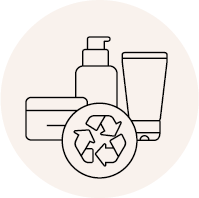Product quality and safety: a priority
Offering consumers the highest quality product is an absolute priority. Over several decades, L’Oréal has set up a single, global and structured quality and safety management system that applies to all its plants and subsidiaries worldwide. Detailed information is provided in subparagraph 4.3.1.3.2. A/.
This unique system guarantees manufacturing excellence and the products' quality with the same high standards applicable everywhere in the world. The ongoing quality improvement process has been effective as seen in the low rate of consumer complaints in 2023: 69 complaints per million products sold(1)At 30 November 2023..
Employee safety is central to the L’Oréal model: in 2023, the Safety Management System, which applies to the Group’s teams and all administrative sites, laboratories, plants, distribution centres and shops, was again recognised by RoSPA(2) Royal Society for the Prevention of Accidents..
At the centre of design and development is innovation in responsible packaging
Thanks to the science of materials and design, consumer experience and product performance, packaging is a key differentiating factor for the product and therefore of its perceived value creation for the consumer. The L’Oréal teams, distributed over five Packaging Hubs around the world, specialise in design, consumer experience, innovation and product development. They rely on the expertise of laboratories dedicated to materials and packaging to create cutting edge innovations worldwide. L’Oréal filed 55 patents for packaging in 2023.
Since 2007, L’Oréal has adopted an eco design process for its packaging. This approach is based on three key drivers (the “3 Rs”): Reduce packaging volumes and therefore resource use; Replace materials and processes with others that have a better environmental footprint (renewable, post consumer recycled, lower carbon impact processes); and Recycle by creating packaging that contributes to the circular economy.
By 2030,
100%
of plastics used in the packaging of L’Oréal products will be recycled or biobased.
By 2030,
L’Oréal will reduce by
20%
the intensity of the packaging quantity used for its products compared to 2019.

At the end of 2023,
96%
of new or updated products have an improved environmental profile*Basis of calculation representing 69% of all projects, excluding items considered to be irrelevant, such as ad hoc animation and promotion products and regulatory compliance leading to changes that are not visible to consumers..
In 2023,
85%
of the PET plastic used came from recycled sources.
L’Oréal’s strategy for participating in the circular economy received acclaim in 2023, with the Solar Impulse Foundation(3) The Solar Impulse Foundation aims to select, accredit and promote clean and cost-effective solutions to help political and economic decision-makers achieve their environmental objectives.recognising L’Oréal’s adoption from 2021 of the ground-breaking innovation from Carbios, which has led to the creation of the first cosmetic bottle made entirely from enzymatically recycled plastic.
Detailed information is provided in subparagraph 4.3.1.1.6.
A purchasing programme that combines economic, environmental and social value
To accompany the Group’s growth, the Purchasing Department selects the most economically, environmentally and socially effective suppliers in accordance with the L’Oréal Buy & Care responsible purchasing policy. Supplier performance is monitored thanks to precise indicators relating to social, environmental and ethical criteria and through their ability to innovate and to meet the Group’s requirements in terms of quality, agility, service and competitiveness.
L’Oréal builds solid relationships with its suppliers to ensure its responsible sourcing and to guarantee the flexibility, reliability and traceability of its supply streams. In a climate of tension and volatility, these long term supplier relationships play a key role in the Group’s ability to secure the volume and price of its raw materials supplies. 1,242 audits were carried out in 2023, meaning 4,891 since 2020.
From 2010, L’Oréal chose to engage with suppliers that have an inclusive solidarity model in order to provide access to employment for people from economically or socially disadvantaged communities, such as people with a disability, the long term unemployed or fair trade suppliers (see paragraph 4.3.3.6.). At the end of 2023, more than 93,000 people had been able to access employment via L’Oréal’s worldwide Inclusive Sourcing programme.
- At 30 November 2023.
- Royal Society for the Prevention of Accidents.
- The Solar Impulse Foundation aims to select, accredit and promote clean and cost-effective solutions to help political and economic decision-makers achieve their environmental objectives.
